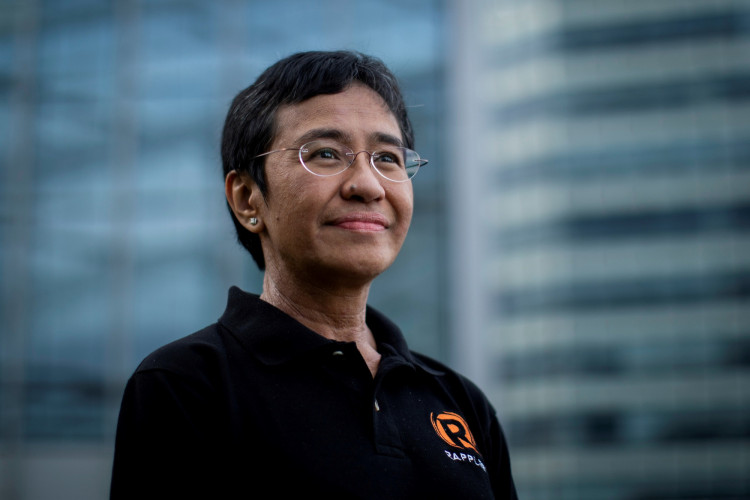Gender or ethnicity quotas in the selection of laureates for the renowned award have been ruled out by the Swedish scientist and head of the academy that awards Nobel prizes.
The Royal Swedish Academy of Sciences' secretary general, Göran Hansson, acknowledged that there are "so few women" in the race, but said the prize would eventually go to those who are "found the most worthy."
"We want to make sure that all deserving women get a fair chance to be evaluated for the Nobel Prize," Hansson said. "So we have made significant efforts to encourage nominations of women scientists."
While more women are being recognized now than in earlier decades, Hansson noted that the trend was "from a very low level."
"Keep in mind that only about 10% of the professors in natural sciences in western Europe or North America are women, and even lower if you go to east Asia."
Maria Ressa, the only woman to receive the Nobel Peace Prize this year, split it with fellow journalist Dmitry Muratov.
Ressa is a co-founder of Rappler, a digital media organization that specializes in investigative journalism, and a prominent critic of Philippine President Rodrigo Duterte.
Muratov co-founded Russia's leading independent newspaper, Novaya Gazeta, in 1993, one of the few remaining media outlets critical of Putin. He has held the position of chief editor on multiple occasions.
Since 1901, only 59 Nobel prizes have been granted to women (6.2% of the total), including two for Marie Curie, who won for Physics in 1903 and Chemistry in 1911.
Despite the fact that four women won Nobel prizes in 2020, close to the 2009 record of five, the awards remain male-dominated because much of the prizewinning work dates back 20, 30, or even 40 years, when fewer women reached the top ranks of academic research.
In 2019, there was only one woman laureate, compared to none in 2017 and 2016.
Hansson said that the topic of gender quotas was addressed around three weeks ago but was discarded on the grounds that it could jeopardize the legitimacy of the laureates.
Other notable women who have received the award include Malala Yousafzai, a child education activist who was jointly awarded the Nobel Peace Prize in 2014; virologist Françoise Barré-Sinoussi, who discovered HIV and was awarded the Nobel Prize in Physiology or Medicine in 2008; and Toni Morrison, whose work explored the harsh realities of racism in the United States and won the Nobel Prize in Literature in 1993.
Marie Curie was the first woman to receive the Nobel Prize for Physics in 1903. She was also the first and only woman to receive multiple Nobel Prizes, having won the Nobel Prize in Chemistry in 1911.






